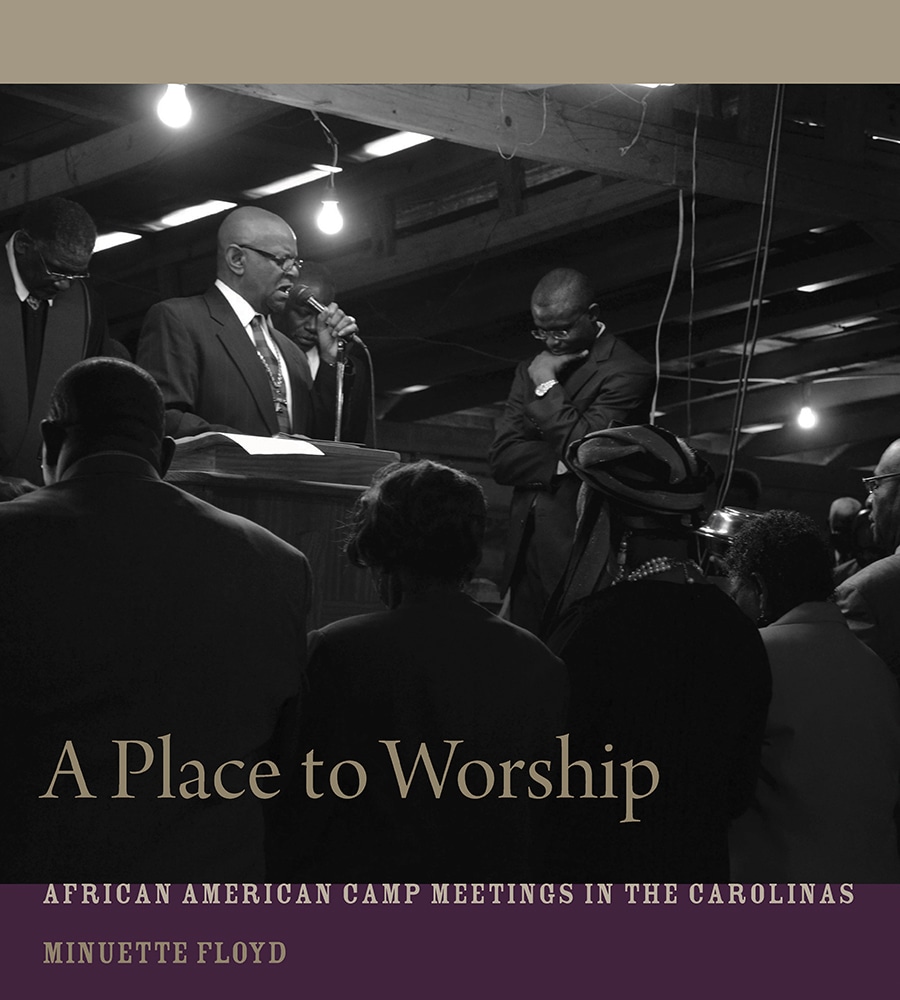Black History Month Sale: 40% off all books, plus FREE SHIPPING on all U.S. orders over $50 | Use code JBHM26

Size: 9 x 10
Pages: 128
Illustrations: 83 b&w halftones, 1 map
Minuette Floyd
The inclusion of this book in the Open Carolina collection is made possible by the generous funding of
"In conjunction with stunning photographs that capture a glimpse into a black religious and social experience, Floyd stylistically writes in a way that transports readers to the outskirts of Catawba County under an arbor. From services to foodways, the tradition of preaching, and the intricacies of the black family structure, Floyd's photographs and anecdotes provide a more intimate look into African American Christian life through camp meetings."—North Carolina Historical Review
"In conjunction with stunning photographs that capture a glimpse into a black religious and social experience, Floyd stylistically writes in a way that transports readers to the outskirts of Catawba County under an arbor. From services to foodways, the tradition of preaching, and the intricacies of the black family structure, Floyd's photographs and anecdotes provide a more intimate look into African American Christian life through camp meetings."—North Carolina Historical Review
Copyright 2026
Website By Morweb.org